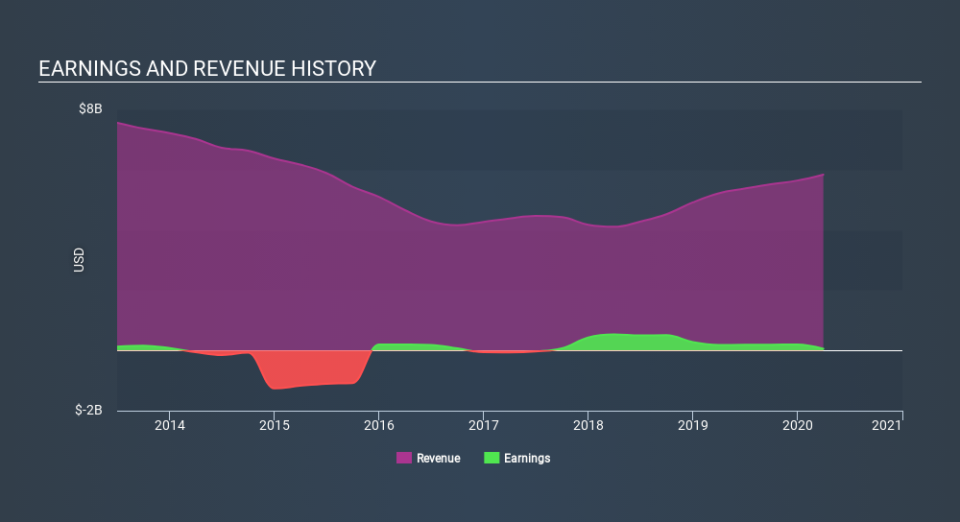How Does Investing In KBR, Inc. (NYSE:KBR) Impact The Volatility Of Your Portfolio?

If you own shares in KBR, Inc. (NYSE:KBR) then it's worth thinking about how it contributes to the volatility of your portfolio, overall. In finance, Beta is a measure of volatility. Modern finance theory considers volatility to be a measure of risk, and there are two main types of price volatility. The first type is company specific volatility. Investors use diversification across uncorrelated stocks to reduce this kind of price volatility across the portfolio. The second type is the broader market volatility, which you cannot diversify away, since it arises from macroeconomic factors which directly affects all the stocks on the market.
Some stocks mimic the volatility of the market quite closely, while others demonstrate muted, exagerrated or uncorrelated price movements. Beta is a widely used metric to measure a stock's exposure to market risk (volatility). Before we go on, it's worth noting that Warren Buffett pointed out in his 2014 letter to shareholders that 'volatility is far from synonymous with risk.' Having said that, beta can still be rather useful. The first thing to understand about beta is that the beta of the overall market is one. A stock with a beta below one is either less volatile than the market, or more volatile but not corellated with the overall market. In comparison a stock with a beta of over one tends to be move in a similar direction to the market in the long term, but with greater changes in price.
See our latest analysis for KBR
What does KBR's beta value mean to investors?
Looking at the last five years, KBR has a beta of 1.21. The fact that this is well above 1 indicates that its share price movements have shown sensitivity to overall market volatility. If this beta value holds true in the future, KBR shares are likely to rise more than the market when the market is going up, but fall faster when the market is going down. Many would argue that beta is useful in position sizing, but fundamental metrics such as revenue and earnings are more important overall. You can see KBR's revenue and earnings in the image below.
How does KBR's size impact its beta?
With a market capitalisation of US$3.0b, KBR is a pretty big company, even by global standards. It is quite likely well known to very many investors. It has a relatively high beta, suggesting it may be somehow leveraged to macroeconomic conditions. For example, it might be a high growth stock with lots of investors trading the shares. It's notable when large companies to have high beta values, because it usually takes substantial capital flows to move their share prices.
What this means for you:
Since KBR has a reasonably high beta, it's worth considering why it is so heavily influenced by broader market sentiment. For example, it might be a high growth stock or have a lot of operating leverage in its business model. This article aims to educate investors about beta values, but it's well worth looking at important company-specific fundamentals such as KBR’s financial health and performance track record. I urge you to continue your research by taking a look at the following:
Future Outlook: What are well-informed industry analysts predicting for KBR’s future growth? Take a look at our free research report of analyst consensus for KBR’s outlook.
Past Track Record: Has KBR been consistently performing well irrespective of the ups and downs in the market? Go into more detail in the past performance analysis and take a look at the free visual representations of KBR's historicals for more clarity.
Other Interesting Stocks: It's worth checking to see how KBR measures up against other companies on valuation. You could start with this free list of prospective options.
Love or hate this article? Concerned about the content? Get in touch with us directly. Alternatively, email editorial-team@simplywallst.com.
This article by Simply Wall St is general in nature. It does not constitute a recommendation to buy or sell any stock, and does not take account of your objectives, or your financial situation. We aim to bring you long-term focused analysis driven by fundamental data. Note that our analysis may not factor in the latest price-sensitive company announcements or qualitative material. Simply Wall St has no position in any stocks mentioned. Thank you for reading.



